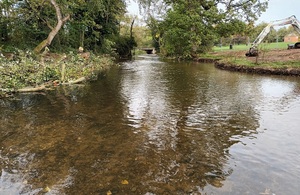Joint Statement from UK Competition and Markets Authority, U.S. FTC and DOJ Antitrust Division leadership following the G7 Competition Enforcers Summit
News story
Leadership of the Federal Trade Commission and the Antitrust Division of the Department of Justice attended meetings in London this week as part of the Competition Enforcers Summit, which took place under the 2021 G7 Digital and Technology Track in connection with the UK’s G7 presidency.

The U.S. agencies expressed their appreciation to the UK’s Competition and Markets Authority (CMA) for hosting them during this event, and for the opportunity to meet in person with the CMA to discuss cooperation between our respective jurisdictions. Following the meeting’s conclusion, the Competition and Markets Authority, the Federal Trade Commission, and the Antitrust Division of the Department of Justice issue this joint statement:
This week’s Competition Enforcers Summit underscored the similar challenges we face as enforcement agencies. Our meetings highlighted the close relationship among our agencies, underscored that we each view this relationship as a critical element of our respective enforcement programs, and affirmed our intent to strengthening collaboration and coordination with one another.
New and evolving challenges require us to innovate in how we accomplish our missions. And in today’s global economy, our agencies often review the same mergers or confront similar potentially anticompetitive conduct. Given the many parallel investigations, we are committed to working closely together to promote fully informed decision-making and to facilitate best practices on pursuing effective remedies. We also welcome working with other agencies both individually and collectively.
We share common goals and are dedicated to close and regular engagement both on the agency head and staff level, as priorities and resources allow. Deeper recognition of our common cause of tackling anticompetitive conduct and mergers opens up possibilities for us to implement robust cross-border enforcement regimes and achieve success in ways that would elude individual agencies working alone.
- For media queries, please contact the press office via press@cma.gov.uk or on 020 3738 6460.
Published 3 December 2021

